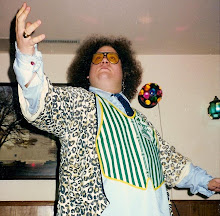2K7 In Review: My Favorite Movies
Hope yer January was swell, my patient pals. I'm still working on a summation of my favorite '07 albums, but finding it difficult to sum up some of them (not to mention time to do so). Since a whole month of 2008 has already gone by, I'm going to switch the topic to cinema in the name of fresh inspiration. Y'all enjoy the current playlist while it's still there.
You know, I really didn't get out to the movies often enough in 2007. The list of stuff I wanted to see but didn't is much longer than the list of what I did see. In fact, aside from a coupla so-so blockbuster sequels and a few horror movies undeserving of further mention, this top ten is pretty much a list of all the new films I saw last year, period. At this rate, "Cloverfield" will be on network television before I get around to "Reno 911!: Miami." From what I hear, that's a good thing, but, still.
Before we begin, I must make special mention of "El Laberinto del Fauno," known in the States as "Pan's Labyrinth," which I feel was the best movie of 2006 but which was not released near me until early 2007. I'm therefore considering it to be out of the running here, with the strong suggestion that you watch it if you haven't done so. (South Korean import "The Host" is another 2006 film affected by late U.S. distribution. You really should see that, too.)
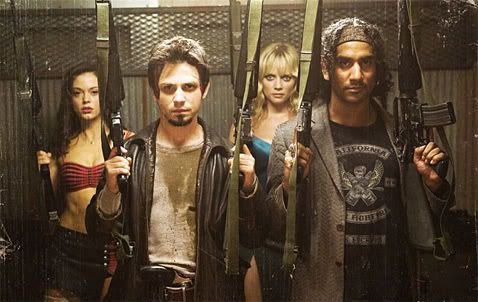 1. "Grindhouse" (dirs. Robert Rodriguez and Quentin Tarantino, Dimension)
1. "Grindhouse" (dirs. Robert Rodriguez and Quentin Tarantino, Dimension)
For pure cinematic exhuberance, nothing topped this now-infamous flop double feature. (Come on. Naveen Andrews face down in a pile of human testicles. Dude!!!) Myriad theories abound as to why hardly anyone went to see it, but the fact remains that nothing of this sort has ever been attempted before, and now probably never will again. Were Rodriguez and Tarantino purely on a blind ego trip to assume the world would embrace not only a gleeful tribute to the cinematic sleaze of yesteryear, but a meticulous reconstruction of its milieu? They certainly delivered it. Rodriguez made "Planet Terror" feel like an early '80s gore flick, down to the synthesizer score and cinematography, and his acclaimed "Machete" trailer kicked the whole thing off with just the sort of over-the-top spectacle it needed. Meanwhile, Tarantino's "Death Proof" was a perfect bottom half of the bill, alternately languid and gripping, playfully warm and sadistically cold. In between, there was an ad for a fake local restaurant as well as three more bogus movie trailers by Rob Zombie, Edgar Wright and Eli Roth, each a loving ode to vintage exploitation flick marketing. I admit that the appeal of "Grindhouse" to me was somewhat academic - I'm really into the sort of old Times Square/drive-in movie squalor it saluted. However, it was a damn fine piece of entertainment in its own right, which packed more thrills, gross-outs, laughs and flat-out entertainment into three hours than anything else I saw in 2007.
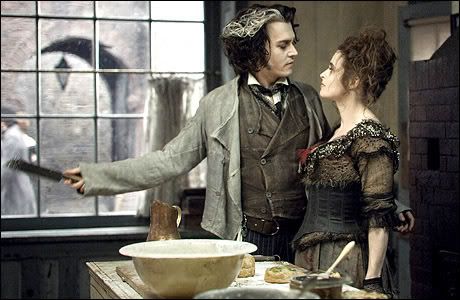 2. "Sweeney Todd: The Demon Barber of Fleet Street" (dir. Tim Burton, DreamWorks/Warner Bros.)
2. "Sweeney Todd: The Demon Barber of Fleet Street" (dir. Tim Burton, DreamWorks/Warner Bros.)
Tim Burton. Johnny Depp. "Sweeney Todd." That's pretty much all you had to say to get me psyched about this blood-soaked musical. Far more suited to Burton's singular talents than, say, "Planet of the Apes" or "Charlie and the Chocolate Factory," his take on Stephen Sondheim's version of "The String of Pearls" is as dark an adaptation as it needed to be. I know a few Sondheim fans who say this show is among his finest works, and having enjoyed a production of "Assassins" earlier this year, I must admit that I think I'm becoming a fan as well. As a musical, this thing is as epic and complex as you could want, with the songs a crucial part of the narrative rather than a silly excuse to stop the story so everybody can wiggle around. Depp is excellent as the tormented barber, so warped by vengeance that it consumes nearly everyone in his path. Burton's lady Helena Bonham Carter is the least "pro" singer here, but she taps that nervous, wasted charm that served her in "Fight Club" to make the desperate Mrs. Lovett a tragically cynical scavenger. I would go so far as to say that it's the most "adult" picture Burton's ever been a part of, not only because of its pleasingly bold gruesomeness (it's way more brutal than "Sleepy Hollow"). Although it contains a number of wry Burtonian glimpses of whimsy and childlike wonder, its overwhelmingly downbeat focus remains on social injustice and human treachery. Maybe he could do a good job with "Geek Love," after all.
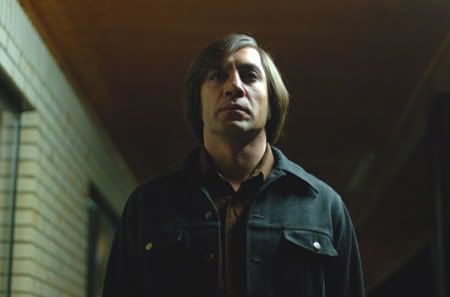 3. "No Country for Old Men" (dirs. Joel Coen and Ethan Coen, Miramax)
3. "No Country for Old Men" (dirs. Joel Coen and Ethan Coen, Miramax)
The pre-release hype said that the Coen Brothers had created another neo-noir of "Blood Simple" proportions, and for once the hype was correct. "No Country," based on Cormac McCarthy's 2005 novel, is as timeless and taut an observation of circumstance as the Coens' debut, but with a dryer, more ambient atmosphere. It's also got a lot in common with "Fargo," in that you basically have the story of a regular guy who gets involved with an ill-advised get-rich-quick scheme but soon finds himself over his head, scrambling to stay afloat and putting his wife in serious jeopardy while a laconic cop (formally introduced well into the film) and the real criminals close in. This lot is much harsher, though, especially in the case of Javier Bardem's self-appointed agent of fate, a creepy cattle gun-toting killer. While the film doesn't attempt to apologize for anyone's actions, it doesn't condemn them, either. I've seen the words "nihilistic" and "unforgiving" come up a lot in reviews, and although neither are off base, both terms discount the flashes of dark humor and esoteric contemplation that pierce the tension and make the sparse, alien landscape more recognizable. It's so nice to see the Coens back to making movies with no drawbacks.
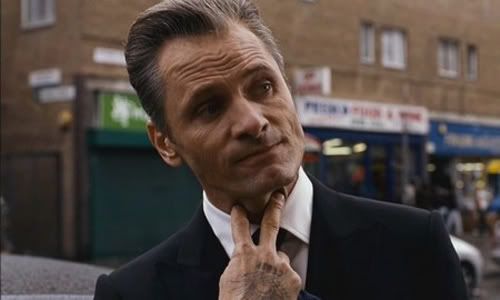 4. "Eastern Promises" (dir. David Cronenberg, Focus)
4. "Eastern Promises" (dir. David Cronenberg, Focus)
A more immediately satisfying tale of innocence and corruption than his much-lauded "A History of Violence," Cronenberg's follow-up is doomed to be looked at as a companion piece to that surprising mainstream success, if for no other reason than it also stars Viggo Mortensen as an apparently rock-solid dude whose true morals and motives are not readily apparent. Don't get me wrong, the slow-burn mastery of "Violence" was clear upon a second viewing, but the frequently upsetting nature of "Promises" definitely has more of Cronenberg's signature on it. Ol' Dave can obviously do classy and urbane as well as the next Canadian sophisticate, but his impressions of the cerebral and the emotional remain inseparable from the physical, which is why even his flicks that make you think can still be felt in the gut. Even if its (conspicuously) socially responsible climax leaves audiences less uneasy and its eventful plotting makes it a more conventional film, from the opening bloodletting it's obvious that this is not intended to be a smooth ride. As the harried heroine, Naomi Watts is pretty much a worried cipher. Despite two divergently duplicitous faces of evil in Armin Mueller-Stahl and Vincent Cassel, both doing a fantastic job, this is Viggo's movie, his macho Russian mob crony's heart genuinely ambiguous until the final reel. His body's hard lines, tight muscles and elaborate tattoos - all on very full display during the movie's infamous bath house brawl - conveys the same chilly austerity and messy immediacy Cronenberg has brought to his films going back to "Shivers."
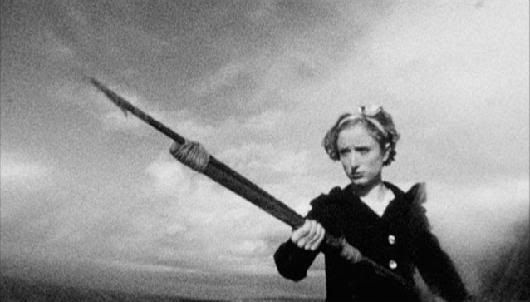 5. "Brand Upon the Brain!" (dir. Guy Maddin, The Film Company)
5. "Brand Upon the Brain!" (dir. Guy Maddin, The Film Company)
Its title suggests an indelible mark upon one's consciousness, a suitable way to describe the effect Guy Maddin can have on a viewer. He is clearly a man who loves cinema, reveling in the brazen emotion of the silent and Expressionist eras as well as the primitive yet striking artifice of it all. Here, his fuzzy, rapidly cut black and white images and emphatic intertitles join vivid narration to tell a story the grand showman likes to call "about 96% true." His main character is named Guy Maddin, who returns to his childhood home and recalls his overprotective mother, his virtually nonexistent father and his older sister whose budding sexuality brought about tumultuous family clashes as he navigated the fears and fevers of youth. He also remembers that his mother kept orphans in brainwashed servitude, and that one summer famous teen twin detectives came to their island and the girl fell in love with his sister, despite young Guy's adoration of the comely sleuth. In addition to distilling heightened emotion in images, "Brand" explores the very idea of memory itself, addressing the conflict between events and people that might be real at their core and the hyperreal way a child sees and recalls them. It's not a biopic, yet the Winnipeg-bred cult icon uses his own name and memories to spin a tale just as folkloric, weird, frightening and enchanting as his previous stories about legless beer baronesses and battling fishermen. How much of the far-fetched story actually happened is irrelevant, as the fun is in the way the story is told, and there aren't many cinematic stylists as intriguing or magical as Maddin. The joyous presentation that accompanied theatrical screenings (with live narrator, orchestra and sound effects crew) was just wondrous icing.
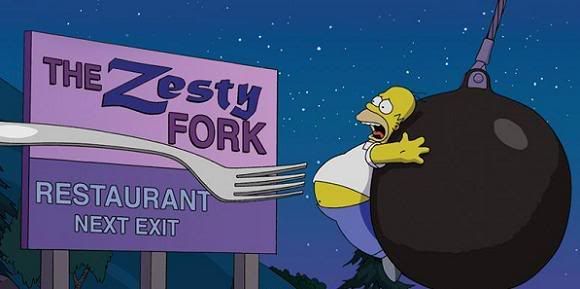 6. "The Simpsons Movie" (dir. David Silverman, 20th Century Fox)
6. "The Simpsons Movie" (dir. David Silverman, 20th Century Fox)
A film spun off from an 18 year-old sitcom shouldn't be an exciting prospect. Sure, FOX proved that their sci-fi programs could successfully make the big screen transition with both "The X-Files" and "Serenity," but the tradition for TV comedies is mostly unloved updates in the manner of "The Honeymooners" or "Leave It to Beaver." You know, shows that aren't in production anymore, as opposed to Matt Groening's animated international favorite. Add this to perpetual criticism that "The Simpsons" ain't what it used to be, too reliant on celebrity stunt casting or recycled storylines to provide the same satiric delight it did a decade ago, and releasing a film version suddenly sounds worrisome. After all, while "Aqua Teen Hunger Force" can offer transcendent non sequitur anarchy in 11-minute doses, expanding to movie length sadly resulted in formless tedium. Thankfully, "The Simpsons Movie" follows the influence of sci-fi shows like "Star Trek" rather than that of its animated brethren, opting for a script that's basically a long episode of the show with more locations and snazzier special effects. Everything the series offers is here: the tangent-filled set-up, great zingers from Springfield's minor denizens, the deft balance of sentimentality and sarcasm. Even though it's been in the works for years, it asserts its prescience by focusing its story on environmental disaster at a time when green living is so fashionable it's literally become a corporate marketing tool. "The Simpsons Movie" is a more effective distillation of American living in 2007 than its creators probably realized, yet its lowbrow and highbrow laughs will still be savagely funny in another 18 years.
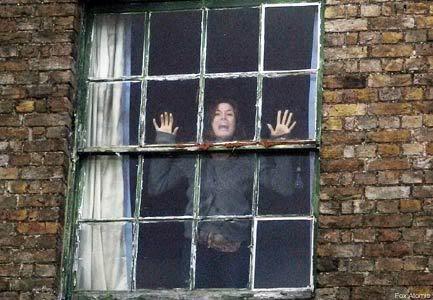 7. "28 Weeks Later" (dir. Juan Carlos Fresnadillo, Fox Atomic)
7. "28 Weeks Later" (dir. Juan Carlos Fresnadillo, Fox Atomic)
Sequels are tricky things, necessarily born out of financial desires but artistically open to myriad avenues. Danny Boyle's 2002 pseudo-zombie thriller "28 Days Later" was a cool picture, cataloguing the main themes of the three "Dead" movies George Romero had released at the time. You know: the human race is growing extinct due to some rapidly-spread anomaly, which tests the resilience, selflessness and courage of the survivors, many just ordinary people trying to get by but caught between military and scientific "solutions" to inevitable all-consuming armageddon. Romero progressed this scenario himself in 2005's underloved "Land of the Dead" by positioning his undead as an increasingly cognizant underclass, but "28 Weeks Later" introduces an even bleaker future. The plague that decimated England is deemed contained, and the streets that seemed so uncannily empty begin to repopulate under the aegis of the American military. Of course, the Rage virus didn't die out completely, but the way it's reintroduced is what makes "28 Weeks" better than your average "it's back!" horror sequel. Despite the grand-scale catastrophe it entails, it's essentially driven by the decimation of a family that survived the first wave, with interpersonal loyalties confounded by the fact that both parents are each in their own way pawns of destruction. Spanish director Fresnadillos confidently paces the film to allow for both "Demons"-level monster mayhem and eerie post-9/11 shivers. His frantic, hand-held attack sequences, aided by John Murphy's drearily sublime post-rock score, never overwhelm the spooky moments of quiet reflection. As far as zombie movies that aren't really about zombies, this one is as good as it gets.
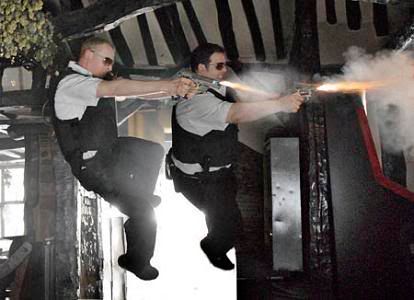 8. "Hot Fuzz" (dir. Edgar Wright, Rogue)
8. "Hot Fuzz" (dir. Edgar Wright, Rogue)
After an auspicious debut in "Shaun of the Dead," Wright and his buddies/stars Simon Pegg and Nick Frost offer another affectionately violent spoof of American cinematic chestnuts. While the only people I've ever heard of disliking "Shaun" were drunks or morons, I'll admit that the zombie film isn't as widely accessible as the action/adventure blockbuster when it comes to a send-up subject. The former is of course nearer to my heart, but the "Spaced" gang takes the piss out of hard men causing explosions with colossal guns with equal love. The plot begins with a sitcom-simple premise - a London cop who's so effective he's shipped off to the countryside so he won't raise the standard for his underachieving colleagues - but eventually takes a turn into "horror" territory with a winking homage to the cult British chiller "The Wicker Man." "Fuzz" makes Pegg's and Frost's characters warm up to each other in the manner of a buddy cop film rather than starting them off as partner-pals, and the actors' longtime friendship gives their onscreen chemistry the crucial dose of realism that makes it more than a parody. It gets in its jabs at the genre (e.g. Frost goes on about how much he loves "Bad Boys II" and "Point Break") but organically combines it with homage in service of an actual story. At a time when the spoof picture has degenerated into the dull parade of pop culture references and fart jokes that "Meet the Spartans" appears to be, we need movies like this.
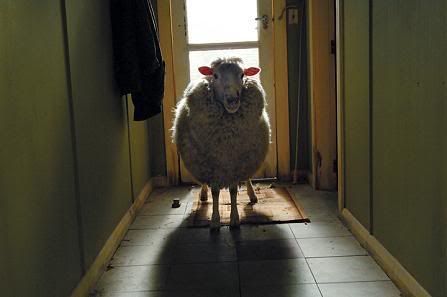 9. "Black Sheep" (dir. Jonathan King, IFC)
9. "Black Sheep" (dir. Jonathan King, IFC)
Yes, a killer mutant sheep movie can be considered a sign of the times. While not a horror film in any real sense of the term, a fear of genetic experimentation run amuck gives this gory surprise a contemporary flavor that goes down nicely with its antiquated rural setting and non-computer generated effects. That's not to say Jonathan King's directorial debut is out to make a Grand Statement. It's a monster movie in the classic '70s "nature's revenge" mode, its tone much more "Piranha" than "Prophecy." It never reaches laugh-out-loud funny status, but it does treat its outlandish premise with appropriate whimsy, something its earnest but ultimately granola-brained disco-era spiritual brethren never figured out. Because it's from New Zealand and Weta Workshop handled the animatronics and gore, "Black Sheep" feels like a less kinetic version of one of Peter Jackson's early splatterfests, which were an admitted inspiration for King and company. Those impressive practical effects, from kick-ass creatures to ripped-out entrails, add an organic warmth to the slimy shenanigans. The story is standard issue invasion stuff, but in having the initial mixing of human and sheep DNA result in victims turning into bellowing were-sheep, the filmmakers throw a wry "animal husbandry" curveball. It's not even the best example of the genre, but it never overreaches its ultimately quaint boundaries, making its brand of wild and woolly fun easy to love.
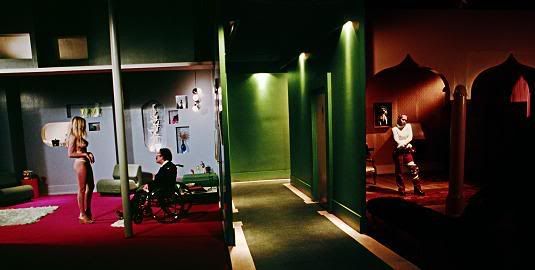 10. "It Is Fine. EVERYTHING IS FINE!" (dirs. David Brothers and Crispin Hellion Glover, Volcanic Eruptions)
10. "It Is Fine. EVERYTHING IS FINE!" (dirs. David Brothers and Crispin Hellion Glover, Volcanic Eruptions)
In the second film of a self-described trilogy, infamous oddball Crispin Glover achieves a pretty stunning feat. This is the story of a man with severe cerebral palsy, a fetish for long-haired women, unparalleled powers to talk them into the sack and a compulsion to strangle them. He's played by an actual guy with CP, late screenwriter Steven C. Stewart, whose dialogue is often only understood by himself and the other characters (his speech is impaired by his condition and there are - intentionally - no subtitles). He has visible difficulty with the physical movements required for the strangling scenes, and watching a man with cerebral palsy receive uncensored fellatio from a woman about half his age is far from comfortable viewing. The film's utilitarian camerawork and co-director Brothers' highly stylized ugly-kitsch exploitation movie sets suggest Harmony Korine trying to remake an early John Waters comedy without the caustically sweet sense of humor. Yet, there are laughs in "Fine," albeit of the darker variety, and there is even a purpose to what on paper admittedly sounds like the work of some deranged scuzzball. You have to know the story behind what Glover calls "probably the best film I'll ever be a part of," which he financed with his salary from the first "Charlie's Angels" movie. In an atypical plea for equal opportunity, Stewart's whole point in writing it was to subvert the sunny, patient, saintly stereotype of disabled film characters, to point out that people with handicaps are as prone to frustrations and fetishes and bad thoughts as anyone else. His longtime ambition was getting this film made. He passed away shortly after filming wrapped, as if he were waiting for it to be finished. To know that and see the end result, one can't help but feel a little awed, chastened and enlightened, even though you'll want a shower when you're through.
Honorable mentions:
"300" (dir. Zack Snyder, Warner Bros.)
"The Darjeeling Limited" (dir. Wes Anderson, Fox Searchlight)
"Walk Hard: The Dewey Cox Story" (dir. Jake Kasdan, Columbia)
You know, I really didn't get out to the movies often enough in 2007. The list of stuff I wanted to see but didn't is much longer than the list of what I did see. In fact, aside from a coupla so-so blockbuster sequels and a few horror movies undeserving of further mention, this top ten is pretty much a list of all the new films I saw last year, period. At this rate, "Cloverfield" will be on network television before I get around to "Reno 911!: Miami." From what I hear, that's a good thing, but, still.
Before we begin, I must make special mention of "El Laberinto del Fauno," known in the States as "Pan's Labyrinth," which I feel was the best movie of 2006 but which was not released near me until early 2007. I'm therefore considering it to be out of the running here, with the strong suggestion that you watch it if you haven't done so. (South Korean import "The Host" is another 2006 film affected by late U.S. distribution. You really should see that, too.)
 1. "Grindhouse" (dirs. Robert Rodriguez and Quentin Tarantino, Dimension)
1. "Grindhouse" (dirs. Robert Rodriguez and Quentin Tarantino, Dimension)For pure cinematic exhuberance, nothing topped this now-infamous flop double feature. (Come on. Naveen Andrews face down in a pile of human testicles. Dude!!!) Myriad theories abound as to why hardly anyone went to see it, but the fact remains that nothing of this sort has ever been attempted before, and now probably never will again. Were Rodriguez and Tarantino purely on a blind ego trip to assume the world would embrace not only a gleeful tribute to the cinematic sleaze of yesteryear, but a meticulous reconstruction of its milieu? They certainly delivered it. Rodriguez made "Planet Terror" feel like an early '80s gore flick, down to the synthesizer score and cinematography, and his acclaimed "Machete" trailer kicked the whole thing off with just the sort of over-the-top spectacle it needed. Meanwhile, Tarantino's "Death Proof" was a perfect bottom half of the bill, alternately languid and gripping, playfully warm and sadistically cold. In between, there was an ad for a fake local restaurant as well as three more bogus movie trailers by Rob Zombie, Edgar Wright and Eli Roth, each a loving ode to vintage exploitation flick marketing. I admit that the appeal of "Grindhouse" to me was somewhat academic - I'm really into the sort of old Times Square/drive-in movie squalor it saluted. However, it was a damn fine piece of entertainment in its own right, which packed more thrills, gross-outs, laughs and flat-out entertainment into three hours than anything else I saw in 2007.
 2. "Sweeney Todd: The Demon Barber of Fleet Street" (dir. Tim Burton, DreamWorks/Warner Bros.)
2. "Sweeney Todd: The Demon Barber of Fleet Street" (dir. Tim Burton, DreamWorks/Warner Bros.)Tim Burton. Johnny Depp. "Sweeney Todd." That's pretty much all you had to say to get me psyched about this blood-soaked musical. Far more suited to Burton's singular talents than, say, "Planet of the Apes" or "Charlie and the Chocolate Factory," his take on Stephen Sondheim's version of "The String of Pearls" is as dark an adaptation as it needed to be. I know a few Sondheim fans who say this show is among his finest works, and having enjoyed a production of "Assassins" earlier this year, I must admit that I think I'm becoming a fan as well. As a musical, this thing is as epic and complex as you could want, with the songs a crucial part of the narrative rather than a silly excuse to stop the story so everybody can wiggle around. Depp is excellent as the tormented barber, so warped by vengeance that it consumes nearly everyone in his path. Burton's lady Helena Bonham Carter is the least "pro" singer here, but she taps that nervous, wasted charm that served her in "Fight Club" to make the desperate Mrs. Lovett a tragically cynical scavenger. I would go so far as to say that it's the most "adult" picture Burton's ever been a part of, not only because of its pleasingly bold gruesomeness (it's way more brutal than "Sleepy Hollow"). Although it contains a number of wry Burtonian glimpses of whimsy and childlike wonder, its overwhelmingly downbeat focus remains on social injustice and human treachery. Maybe he could do a good job with "Geek Love," after all.
 3. "No Country for Old Men" (dirs. Joel Coen and Ethan Coen, Miramax)
3. "No Country for Old Men" (dirs. Joel Coen and Ethan Coen, Miramax)The pre-release hype said that the Coen Brothers had created another neo-noir of "Blood Simple" proportions, and for once the hype was correct. "No Country," based on Cormac McCarthy's 2005 novel, is as timeless and taut an observation of circumstance as the Coens' debut, but with a dryer, more ambient atmosphere. It's also got a lot in common with "Fargo," in that you basically have the story of a regular guy who gets involved with an ill-advised get-rich-quick scheme but soon finds himself over his head, scrambling to stay afloat and putting his wife in serious jeopardy while a laconic cop (formally introduced well into the film) and the real criminals close in. This lot is much harsher, though, especially in the case of Javier Bardem's self-appointed agent of fate, a creepy cattle gun-toting killer. While the film doesn't attempt to apologize for anyone's actions, it doesn't condemn them, either. I've seen the words "nihilistic" and "unforgiving" come up a lot in reviews, and although neither are off base, both terms discount the flashes of dark humor and esoteric contemplation that pierce the tension and make the sparse, alien landscape more recognizable. It's so nice to see the Coens back to making movies with no drawbacks.
 4. "Eastern Promises" (dir. David Cronenberg, Focus)
4. "Eastern Promises" (dir. David Cronenberg, Focus)A more immediately satisfying tale of innocence and corruption than his much-lauded "A History of Violence," Cronenberg's follow-up is doomed to be looked at as a companion piece to that surprising mainstream success, if for no other reason than it also stars Viggo Mortensen as an apparently rock-solid dude whose true morals and motives are not readily apparent. Don't get me wrong, the slow-burn mastery of "Violence" was clear upon a second viewing, but the frequently upsetting nature of "Promises" definitely has more of Cronenberg's signature on it. Ol' Dave can obviously do classy and urbane as well as the next Canadian sophisticate, but his impressions of the cerebral and the emotional remain inseparable from the physical, which is why even his flicks that make you think can still be felt in the gut. Even if its (conspicuously) socially responsible climax leaves audiences less uneasy and its eventful plotting makes it a more conventional film, from the opening bloodletting it's obvious that this is not intended to be a smooth ride. As the harried heroine, Naomi Watts is pretty much a worried cipher. Despite two divergently duplicitous faces of evil in Armin Mueller-Stahl and Vincent Cassel, both doing a fantastic job, this is Viggo's movie, his macho Russian mob crony's heart genuinely ambiguous until the final reel. His body's hard lines, tight muscles and elaborate tattoos - all on very full display during the movie's infamous bath house brawl - conveys the same chilly austerity and messy immediacy Cronenberg has brought to his films going back to "Shivers."
 5. "Brand Upon the Brain!" (dir. Guy Maddin, The Film Company)
5. "Brand Upon the Brain!" (dir. Guy Maddin, The Film Company)Its title suggests an indelible mark upon one's consciousness, a suitable way to describe the effect Guy Maddin can have on a viewer. He is clearly a man who loves cinema, reveling in the brazen emotion of the silent and Expressionist eras as well as the primitive yet striking artifice of it all. Here, his fuzzy, rapidly cut black and white images and emphatic intertitles join vivid narration to tell a story the grand showman likes to call "about 96% true." His main character is named Guy Maddin, who returns to his childhood home and recalls his overprotective mother, his virtually nonexistent father and his older sister whose budding sexuality brought about tumultuous family clashes as he navigated the fears and fevers of youth. He also remembers that his mother kept orphans in brainwashed servitude, and that one summer famous teen twin detectives came to their island and the girl fell in love with his sister, despite young Guy's adoration of the comely sleuth. In addition to distilling heightened emotion in images, "Brand" explores the very idea of memory itself, addressing the conflict between events and people that might be real at their core and the hyperreal way a child sees and recalls them. It's not a biopic, yet the Winnipeg-bred cult icon uses his own name and memories to spin a tale just as folkloric, weird, frightening and enchanting as his previous stories about legless beer baronesses and battling fishermen. How much of the far-fetched story actually happened is irrelevant, as the fun is in the way the story is told, and there aren't many cinematic stylists as intriguing or magical as Maddin. The joyous presentation that accompanied theatrical screenings (with live narrator, orchestra and sound effects crew) was just wondrous icing.
 6. "The Simpsons Movie" (dir. David Silverman, 20th Century Fox)
6. "The Simpsons Movie" (dir. David Silverman, 20th Century Fox)A film spun off from an 18 year-old sitcom shouldn't be an exciting prospect. Sure, FOX proved that their sci-fi programs could successfully make the big screen transition with both "The X-Files" and "Serenity," but the tradition for TV comedies is mostly unloved updates in the manner of "The Honeymooners" or "Leave It to Beaver." You know, shows that aren't in production anymore, as opposed to Matt Groening's animated international favorite. Add this to perpetual criticism that "The Simpsons" ain't what it used to be, too reliant on celebrity stunt casting or recycled storylines to provide the same satiric delight it did a decade ago, and releasing a film version suddenly sounds worrisome. After all, while "Aqua Teen Hunger Force" can offer transcendent non sequitur anarchy in 11-minute doses, expanding to movie length sadly resulted in formless tedium. Thankfully, "The Simpsons Movie" follows the influence of sci-fi shows like "Star Trek" rather than that of its animated brethren, opting for a script that's basically a long episode of the show with more locations and snazzier special effects. Everything the series offers is here: the tangent-filled set-up, great zingers from Springfield's minor denizens, the deft balance of sentimentality and sarcasm. Even though it's been in the works for years, it asserts its prescience by focusing its story on environmental disaster at a time when green living is so fashionable it's literally become a corporate marketing tool. "The Simpsons Movie" is a more effective distillation of American living in 2007 than its creators probably realized, yet its lowbrow and highbrow laughs will still be savagely funny in another 18 years.
 7. "28 Weeks Later" (dir. Juan Carlos Fresnadillo, Fox Atomic)
7. "28 Weeks Later" (dir. Juan Carlos Fresnadillo, Fox Atomic)Sequels are tricky things, necessarily born out of financial desires but artistically open to myriad avenues. Danny Boyle's 2002 pseudo-zombie thriller "28 Days Later" was a cool picture, cataloguing the main themes of the three "Dead" movies George Romero had released at the time. You know: the human race is growing extinct due to some rapidly-spread anomaly, which tests the resilience, selflessness and courage of the survivors, many just ordinary people trying to get by but caught between military and scientific "solutions" to inevitable all-consuming armageddon. Romero progressed this scenario himself in 2005's underloved "Land of the Dead" by positioning his undead as an increasingly cognizant underclass, but "28 Weeks Later" introduces an even bleaker future. The plague that decimated England is deemed contained, and the streets that seemed so uncannily empty begin to repopulate under the aegis of the American military. Of course, the Rage virus didn't die out completely, but the way it's reintroduced is what makes "28 Weeks" better than your average "it's back!" horror sequel. Despite the grand-scale catastrophe it entails, it's essentially driven by the decimation of a family that survived the first wave, with interpersonal loyalties confounded by the fact that both parents are each in their own way pawns of destruction. Spanish director Fresnadillos confidently paces the film to allow for both "Demons"-level monster mayhem and eerie post-9/11 shivers. His frantic, hand-held attack sequences, aided by John Murphy's drearily sublime post-rock score, never overwhelm the spooky moments of quiet reflection. As far as zombie movies that aren't really about zombies, this one is as good as it gets.
 8. "Hot Fuzz" (dir. Edgar Wright, Rogue)
8. "Hot Fuzz" (dir. Edgar Wright, Rogue)After an auspicious debut in "Shaun of the Dead," Wright and his buddies/stars Simon Pegg and Nick Frost offer another affectionately violent spoof of American cinematic chestnuts. While the only people I've ever heard of disliking "Shaun" were drunks or morons, I'll admit that the zombie film isn't as widely accessible as the action/adventure blockbuster when it comes to a send-up subject. The former is of course nearer to my heart, but the "Spaced" gang takes the piss out of hard men causing explosions with colossal guns with equal love. The plot begins with a sitcom-simple premise - a London cop who's so effective he's shipped off to the countryside so he won't raise the standard for his underachieving colleagues - but eventually takes a turn into "horror" territory with a winking homage to the cult British chiller "The Wicker Man." "Fuzz" makes Pegg's and Frost's characters warm up to each other in the manner of a buddy cop film rather than starting them off as partner-pals, and the actors' longtime friendship gives their onscreen chemistry the crucial dose of realism that makes it more than a parody. It gets in its jabs at the genre (e.g. Frost goes on about how much he loves "Bad Boys II" and "Point Break") but organically combines it with homage in service of an actual story. At a time when the spoof picture has degenerated into the dull parade of pop culture references and fart jokes that "Meet the Spartans" appears to be, we need movies like this.
 9. "Black Sheep" (dir. Jonathan King, IFC)
9. "Black Sheep" (dir. Jonathan King, IFC)Yes, a killer mutant sheep movie can be considered a sign of the times. While not a horror film in any real sense of the term, a fear of genetic experimentation run amuck gives this gory surprise a contemporary flavor that goes down nicely with its antiquated rural setting and non-computer generated effects. That's not to say Jonathan King's directorial debut is out to make a Grand Statement. It's a monster movie in the classic '70s "nature's revenge" mode, its tone much more "Piranha" than "Prophecy." It never reaches laugh-out-loud funny status, but it does treat its outlandish premise with appropriate whimsy, something its earnest but ultimately granola-brained disco-era spiritual brethren never figured out. Because it's from New Zealand and Weta Workshop handled the animatronics and gore, "Black Sheep" feels like a less kinetic version of one of Peter Jackson's early splatterfests, which were an admitted inspiration for King and company. Those impressive practical effects, from kick-ass creatures to ripped-out entrails, add an organic warmth to the slimy shenanigans. The story is standard issue invasion stuff, but in having the initial mixing of human and sheep DNA result in victims turning into bellowing were-sheep, the filmmakers throw a wry "animal husbandry" curveball. It's not even the best example of the genre, but it never overreaches its ultimately quaint boundaries, making its brand of wild and woolly fun easy to love.
 10. "It Is Fine. EVERYTHING IS FINE!" (dirs. David Brothers and Crispin Hellion Glover, Volcanic Eruptions)
10. "It Is Fine. EVERYTHING IS FINE!" (dirs. David Brothers and Crispin Hellion Glover, Volcanic Eruptions)In the second film of a self-described trilogy, infamous oddball Crispin Glover achieves a pretty stunning feat. This is the story of a man with severe cerebral palsy, a fetish for long-haired women, unparalleled powers to talk them into the sack and a compulsion to strangle them. He's played by an actual guy with CP, late screenwriter Steven C. Stewart, whose dialogue is often only understood by himself and the other characters (his speech is impaired by his condition and there are - intentionally - no subtitles). He has visible difficulty with the physical movements required for the strangling scenes, and watching a man with cerebral palsy receive uncensored fellatio from a woman about half his age is far from comfortable viewing. The film's utilitarian camerawork and co-director Brothers' highly stylized ugly-kitsch exploitation movie sets suggest Harmony Korine trying to remake an early John Waters comedy without the caustically sweet sense of humor. Yet, there are laughs in "Fine," albeit of the darker variety, and there is even a purpose to what on paper admittedly sounds like the work of some deranged scuzzball. You have to know the story behind what Glover calls "probably the best film I'll ever be a part of," which he financed with his salary from the first "Charlie's Angels" movie. In an atypical plea for equal opportunity, Stewart's whole point in writing it was to subvert the sunny, patient, saintly stereotype of disabled film characters, to point out that people with handicaps are as prone to frustrations and fetishes and bad thoughts as anyone else. His longtime ambition was getting this film made. He passed away shortly after filming wrapped, as if he were waiting for it to be finished. To know that and see the end result, one can't help but feel a little awed, chastened and enlightened, even though you'll want a shower when you're through.
Honorable mentions:
"300" (dir. Zack Snyder, Warner Bros.)
"The Darjeeling Limited" (dir. Wes Anderson, Fox Searchlight)
"Walk Hard: The Dewey Cox Story" (dir. Jake Kasdan, Columbia)

